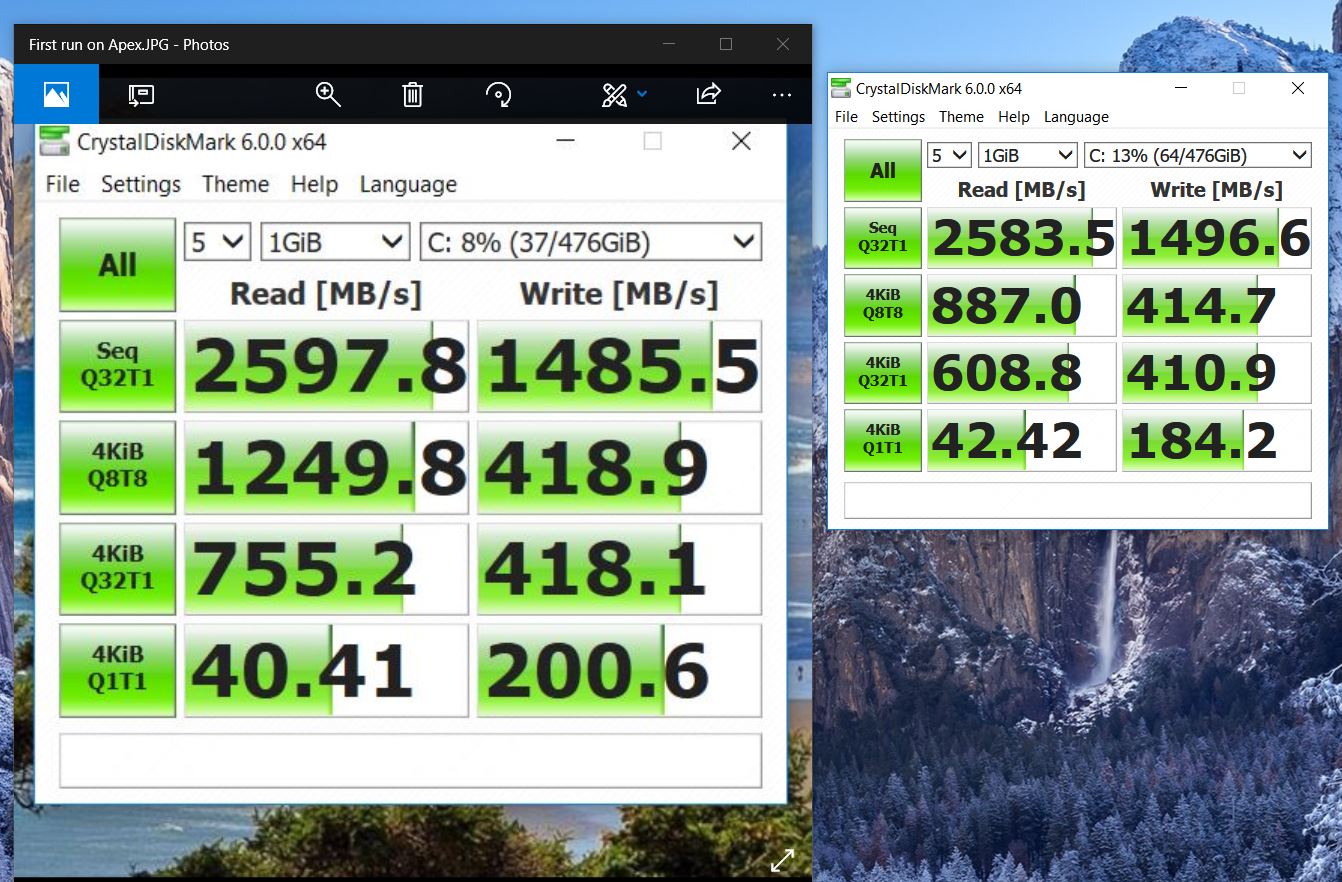- Joined
- Aug 20, 2006
- Messages
- 13,000
TechSpot has published four pages of insight on how the OS and motherboard patches for Meltdown and Spectre could affect your desktop system. While the primary concern for many is CPU performance, the hits to SSDs are also noteworthy: results show up to 40% degradation for processes such as sequential read and write.
Horrible storage performance aside we consistently saw less than a 5% reduction in gaming performance, you’re looking at around a 3-4% drop for the most part when CPU limited, less when GPU limited. SSD performance doesn’t impact frame rates. We’ve seen this when comparing slow hard drives with ultra-snappy SSDs, so there’s really nothing to gain there. Where a drop in storage performance can hurt is with game load times.
Horrible storage performance aside we consistently saw less than a 5% reduction in gaming performance, you’re looking at around a 3-4% drop for the most part when CPU limited, less when GPU limited. SSD performance doesn’t impact frame rates. We’ve seen this when comparing slow hard drives with ultra-snappy SSDs, so there’s really nothing to gain there. Where a drop in storage performance can hurt is with game load times.
![[H]ard|Forum](/styles/hardforum/xenforo/logo_dark.png)
